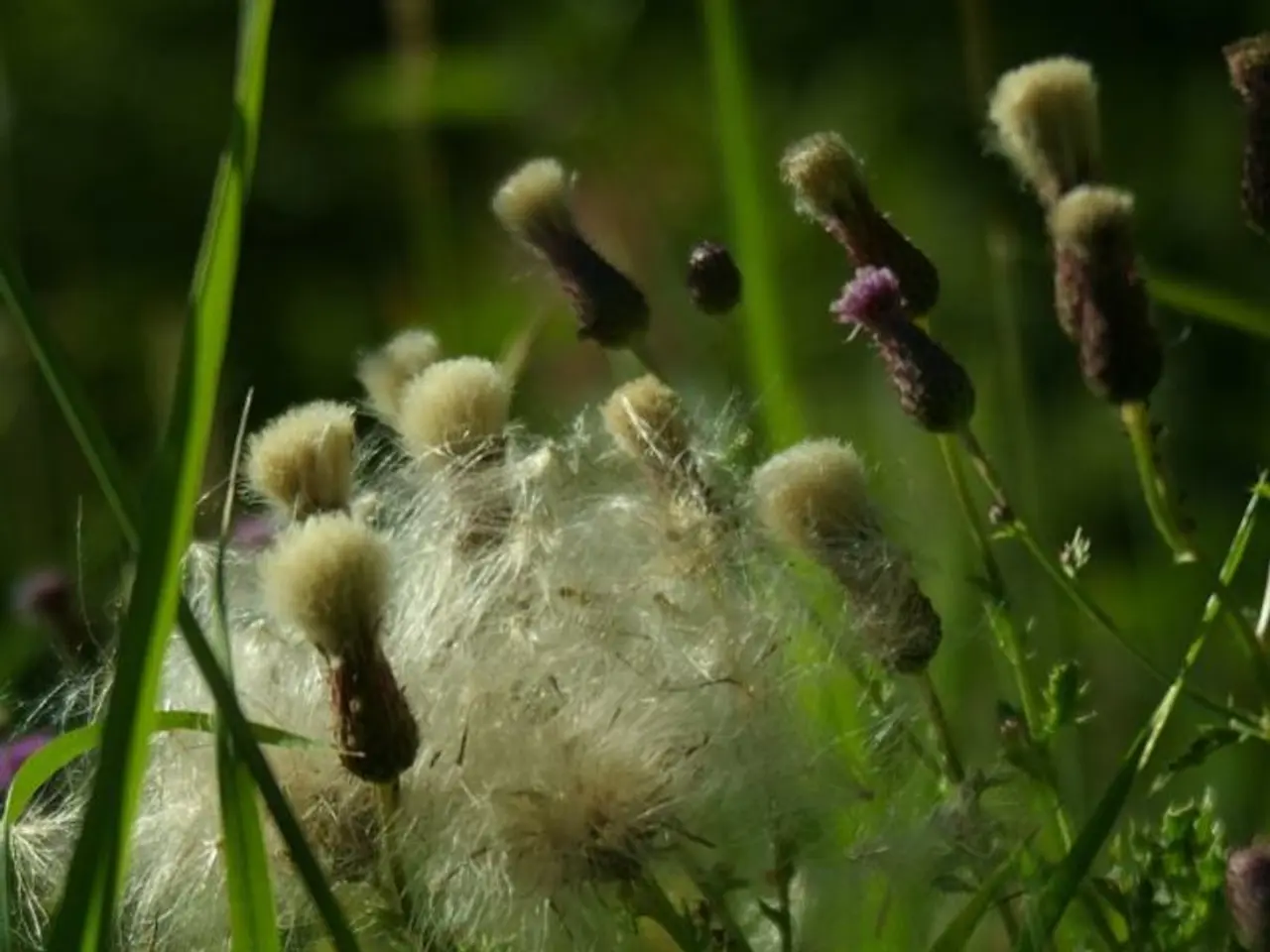"Brings Results" or "Yields Success"
In Quebec, the agricultural landscape is undergoing a significant transformation, thanks to the integration of drone technology. These unmanned aerial vehicles (UAVs) are playing a crucial role in promoting sustainable farming practices, particularly in the areas of soil structure improvement and reduced herbicide usage.
According to predictions by agronomist William Overbeek, the DJI Agras T40 model drone will see a staggering increase in global sales, with an estimated 400,000 units sold worldwide by 2025, up from just 10,000 in 2020. One of the key advantages of these drones is their ability to complete tasks that traditionally required heavy machinery, such as sowing intercrops and cover crops, without causing soil damage.
The use of drones in agriculture supports regenerative agriculture practices, which are becoming increasingly popular in Canada, including Quebec. By minimizing excessive tillage and encouraging continuous soil cover, drones help restore soil health, boost soil organic matter, and improve aggregate stability - essential components of a healthy soil structure.
Moreover, drones enable precision monitoring and targeted seeding, leading to a natural suppression of weeds. This, in turn, reduces the reliance on herbicides. Although pesticide application by drones is not yet approved in Canada, the precision agriculture practices facilitated by drones contribute indirectly to herbicide reduction by optimizing the timing and location of chemical use, often lowering the overall volume required.
The benefits of drone technology are particularly significant in Quebec, where recent agroclimatic conditions, such as high precipitation and moisture excess, challenge traditional crop management. Drone-enabled practices can help adapt to these conditions by improving cover crop establishment in difficult soils, thereby protecting soil from erosion, compaction, and nutrient loss during wet periods.
The DJI Agras T40 model drone can complete sowing a 11.7-hectare field in approximately 1.5 hours, making it a valuable tool for agricultural producers. The cost of a complete drone kit is approximately $50,000, which is significantly less than the cost of tractors for many agricultural producers. As a result, the drone is becoming an essential part of the toolbox for agricultural producers.
Agronomist William Overbeek, who visits between 30 and 50 clients each season, is a strong advocate for the potential of drones in agriculture. Farmers like Jean-François Ménaud, Martine Rainville's partner, have reported benefits from intercropping with a drone for three years. The Quebec Ministry of Agriculture, Fisheries, and Food recognizes intercropping with a drone as an agro-environmental practice because it reduces the use of herbicides and helps prevent weed establishment.
In conclusion, drones are revolutionizing agriculture in Quebec by enhancing the establishment and management of intercrops and cover crops, which improves soil structure, naturally controls weeds, and reduces herbicide dependency, all within the broader framework of regenerative agriculture adoption in the region. While not intended to replace large tractors, drones are undeniably a new tool in the farmer's toolbox, offering a more sustainable and efficient approach to agriculture.
[1] Soil structure improvement: https://www.sciencedirect.com/science/article/pii/S0016706118306176 [2] Reduced herbicide use: https://www.sciencedirect.com/science/article/pii/S0960148119303816 [3] Context in Quebec: https://www.sciencedirect.com/science/article/pii/S0308521X18302742 [4] The Agras T40 model drone: https://www.dji.com/agras-t40 [5] Intercropping: https://www.sciencedirect.com/science/article/pii/S0016706118305113
Technology and the environment are intertwined in the agricultural transformation of Quebec, as the integration of drone technology promotes sustainable practices like soil structure improvement and reduced herbicide usage. This shift towards precision agriculture, facilitated by drones like the DJI Agras T40 model, supports regenerative agriculture and helps farmers adapt to challenging agroclimatic conditions.




